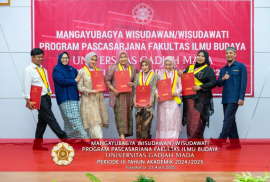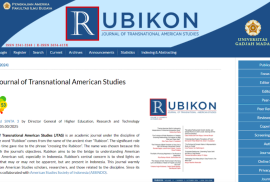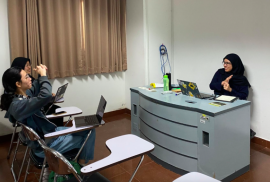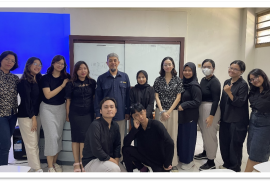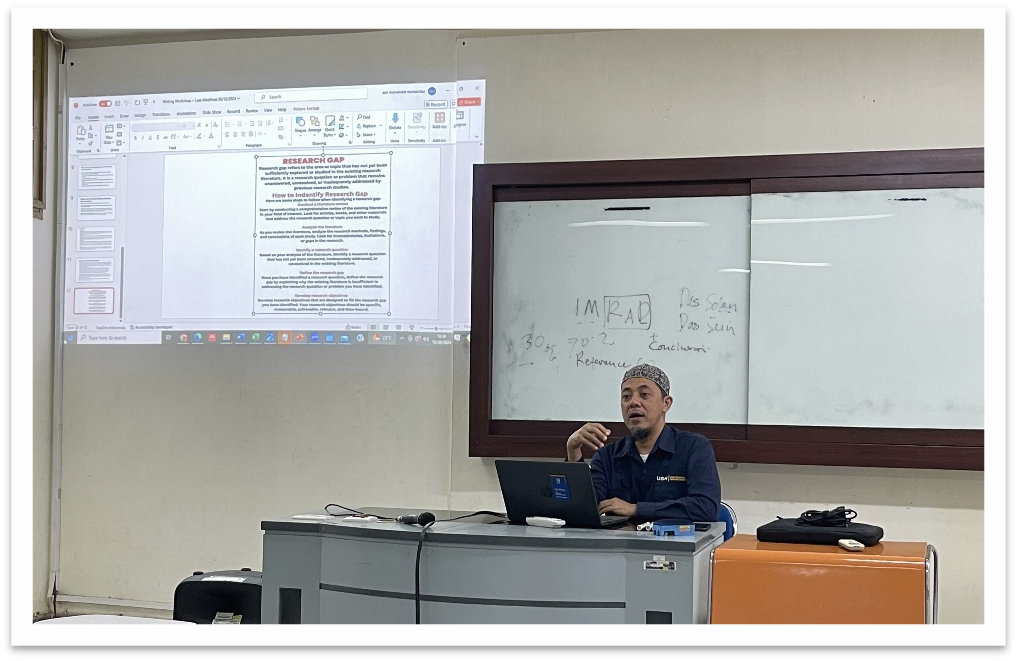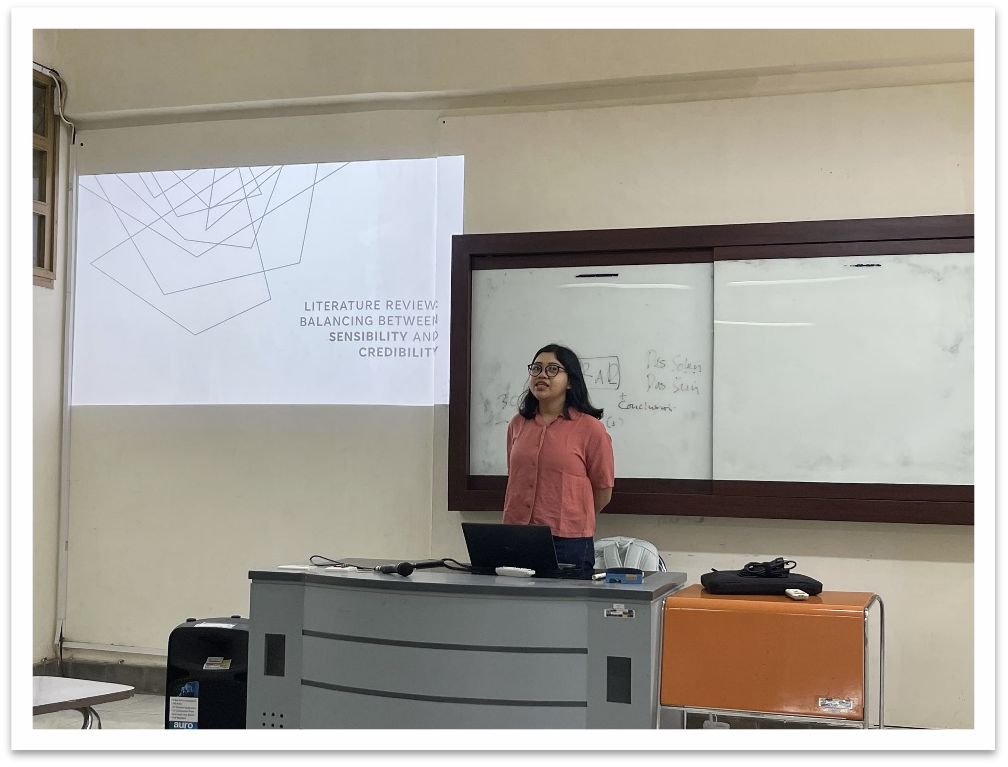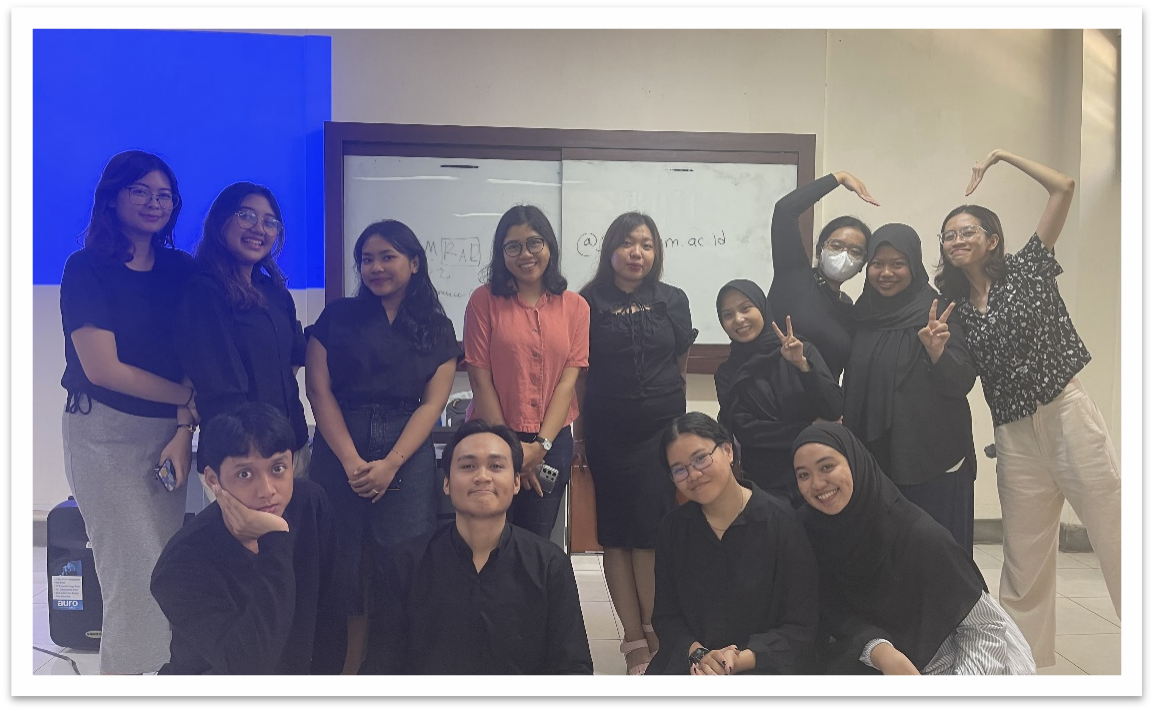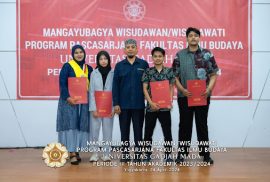Yogyakarta, 30/4/2025 – On Wednesday, 23 April, six students from the American Studies program of FIB, Gadjah Mada University, finished their studies by producing a thesis focusing on social issues and culture that was part of American popular culture. Those six students who graduated consist of Eliyawati and Zahra Kamila from Angkatan 2022 genap, A. Fahmi Dahlan, Leny Roslinda Sinaga, Annida Ul Marhamah from Angkatan 2022 Ganjil, and Aprilia Nilham from Angkatan 2021 Genap. In their thesis, not only the graduate show deep examination of America internally, but also study on America influence that was felt by another country, which is Indonesia.
One thesis written by A. Fahmi Dahlan, “American Hegemony in Indonesian Mass Culture: A Case Study on Hip-hop Community in Wijilan Yogyakarta,” examined how Indonesian hip-hop music was influenced by American hip-hop music through its complex elements. This thesis found that the hegemony in Wijilan hip-hop music could be seen through its cultural empowerment and use of hip-hop as a tool to criticize social issues. In other words, they adapt and merge the global influence with local identity.
As a comparison to previous theses that connected America with Indonesia, the thesis written by Eliyawati titled “The Representation of American Women’s Religiosity in Young Sheldon” found that the concept of Christianity embraced by American women can be observed through their attitudes and the implementation of religious values, including in the roles of women within the family—roles that show a stark contrast when compared to women who do not adhere to any particular faith. In her thesis, she also argues that this representation is evident across the three generations portrayed in Young Sheldon.
Through research that employs a variety of perspectives and issues, their writings are expected to enrich and become references for future studies, especially those related to America, popular culture, and social issues both within America and globally, in order to help build a more open society.
[Public Relation of American Studies, Reni Renatawati]

